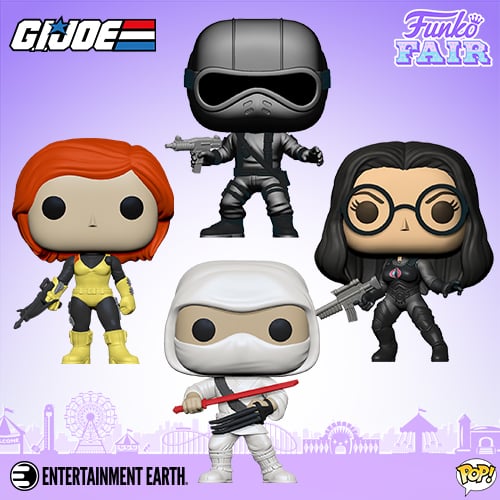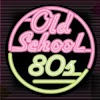(This interview was originally published July 15, 2012 on the now-retired Kickin' it Old School blog. It is one installment in an incredible series of interviews we are republishing on Rediscover the '80s for posterity and your enjoyment. These are more than just interviews in a way; they are more like '80s timelines or oral histories on their respective subject matters. Please keep in mind the original date because some content could be specific to the time of the interview, though the majority should be timeless and totally rad.)
When the opportunity presents itself to ask a few questions to someone who contributed to the awesomeness of the '80s, I will continue to share those answers with you right here. Again, lucky for me (and hopefully you), I do get to share a little more awesomeness with you.
This time that awesomeness is Albert Hammond. He is a British singer, songwriter and producer who had a hit of his own in the early-70s with “It Never Rains in Southern California” but is probably better known for the songs he has written for other artists. Among so many timeless classics, he has co-written such '80s hits as “To All the Girls I’ve Loved Before“, “Nothing’s Gonna Stop Us Now” and “One Moment in Time“. Hammond’s achievements were officially rewarded in 2000, when he received the OBE (Order of the British Empire) from Queen Elizabeth II in London and, in 2008, when he was inducted into the Songwriters Hall of Fame. Find out a little more about him and those '80s hits as we get on to some selections from my interview with Albert Hammond…
Q: When did you know you wanted to be a professional musician? When and how did you get your own start in the music industry?
Albert: I knew what I wanted to do in life when I was eight years old. In fact, I had the opportunity to make a recording and I did. And I still have that recording of which I will probably make it a part of my show in the future. Then in 1960, I won I rock and roll contest in Madrid, Spain. The first prize was a recording contract with RCA. I imagine you can call this the beginning of my professional career.
Q: Please discuss any of your personal musical influences and who molded and inspired the artist you have become.
Albert: I was inspired by many artists, such as Johnny Cash, Roy Orbison, Elvis Presley, The Everly Brothers, The Beatles, The Rolling Stones… But the main artist that inspired me from the very beginning is a guy by the name of Buddy Holly. Because it was Buddy in 1955, 1956 and in fact until the day he died, who I idolized and who I wanted to be like.
Q: When and how did you end up moving into a career of writing songs for other artists to perform? Do you prefer or excel more writing the lyrics or music? Is there a particular song that you wrote which really caused your career to take off?
Albert: I always wrote hoping that other artists would record and perform my songs. I like writing music and lyrics and I do both, but I think I excel more in the music than the lyrics. Even though I had quite a few hits before, “It Never Rains In Southern California” is probably the song I feel made my career take off as a singer, songwriter and producer.
Hammond co-wrote “It Never Rains In Southern California” with Mike Hazlewood which he recorded himself and released in 1972. It became a big radio hit and reached #5 on the Billboard Hot 100. For that same album, Hammond and Hazlewood also wrote the song “The Air That I Breathe” which would become a hit when The Hollies covered it in 1974. Then in 1976, Hammond recorded and co-wrote the song “When I Need You” with Carole Bayer Sager. Leo Sayer would cover this song the following year and have a massive hit reaching #1 on the Billboard Hot 100 in May of 1977. This was only the beginning of Hammond writing songs that would become big hits for other artists.
Q: You co-wrote the 1984 hit single “To All the Girls I’ve Loved Before” with Hal David. How did you hook up with David to write this song? Please take us back to when the song was written. What is the back story about how that song was conceived and written? What inspired it? How long did it take to write? Did you write it specifically for Iglesias and Nelson to sing?
Albert: I hooked up with Hal David in 1973 not thinking that I was going to write “To All the Girls I’ve Loved Before”. We were just going to write an album for myself. It just so happened that “To All the Girls I’ve Loved Before” was written way back then. By the way, it took only an hour to write it and I always thought it was a hit. So when Julio [Iglesias] asked me to produce his record in 1983, I thought this song would be perfect for him. I sang the song to him with my guitar and told him it was a new song, he fell in love with it. But it was 11 years old by that time.Julio Iglesias recorded “To All the Girls I’ve Loved Before” as a duet with Willie Nelson and released it in February of 1984. The single peaked at #5 on the Billboard Hot 100 later that year and reached #1 on the Country chart in May. It was a breakthrough for Iglesias in the English language market and also Nelson’s highest charting single on the pop charts. Here is the video from a live performance of “To All the Girls I’ve Loved Before” by Julio Iglesias and Willie Nelson…
Q: You co-wrote the 1987 smash hit “Nothing’s Gonna Stop Us Now” with Diane Warren. Please take us back to when the song was written. What is the back story about how that song was conceived and written? I read that it was at least in part due to your personal feelings about finally getting to marry your long-time girlfriend.
Albert: The movie director [Michael Gottlieb] gave Diane and I a script for a movie he was doing called Mannequin. At the end of the movie, Andrew McCarthy and Kim Cattrall’s characters were getting married. I was also planning on marrying my long-time girlfriend, so Diane and I thought let’s write a song about two people getting married. According to the script everyone was doing everything possible for them not to marry and my situation with my long-time girlfriend was so similar to the movie. That’s how the song came about and I even used it at my own wedding.
“Nothing’s Gonna Stop Us Now” became a smash hit for Starship in 1987 and was featured in the film Mannequin. It went all the way to #1 on the Billboard Hot 100 in April of 1987 and held the top spot for two weeks. Then later it would hold the top spot on the UK chart for four weeks. Here is the video for “Nothing’s Gonna Stop Us Now” by Starship…
Q: Did you write it specifically for Starship to perform? Did you ever have any feeling that this song might be as huge as it would be when you wrote it?
Albert: We didn’t write it for Starship and I didn’t know that the song was going to be such a big hit. That one was a bit of a surprise.
Q: What were your feelings when you heard the final recording of your song by Starship? What are your feelings regarding “Nothing’s Gonna Stop Us Now” today 25 years later?
Albert: It was actually very similar to the demo that Diane and I did. It feels great to know that the song is such a hit after 25 years.
Q: What can you tell us about Diane Warren and your experiences working with her?
Albert: She’s a terrific songwriter, a great friend and a very talented person and someone that I admire greatly.
Q: You then teamed with Warren again when you co-wrote the 1988 hit “I Don’t Wanna Live Without Your Love” for Chicago. Any interesting facts or memories you can let us in on from creating this hit? Did you write this song specifically for Chicago?
Albert: Not really. Diane and I wrote for four or five years together. We wrote a lot of songs, some of them were hits; some of them could still be if someone decides to record them. Chicago was never on our minds when we wrote it.
Chicago would release “I Don’t Wanna Live Without Your Love” in May of 1988 from their Chicago 19 album featuring Bill Champlin on lead vocals. The ballad was another hit reaching #3 on the Billboard Hot 100 that year. Here is a video for “I Don’t Wanna Live Without Your Love” by Chicago…
Q: You went on to co-write the theme song for the 1988 Summer Olympics, “One Moment in Time”, with John Bettis. How did it come about that you two were commissioned to write this amazingly inspirational song? Did you know before writing the song that it would definitely be used for the Olympics or was it chosen among other candidates?
Albert: Yes, John Bettis and I were commissioned to write the song for the Olympics. We didn’t know if there were other candidates. John and I simply wrote the best song we could for that kind of a situation.
Q: Please take us back to when you wrote the song. What helped inspire the stirring lyrics and style? I read that Elvis Presley was influential? Did you know that it would be Whitney Houston who would perform your song ahead of time. If not, when and how was that decided?
Albert: As I said above, we wanted to write the best song and the artist in my mind was Elvis Presley (even though he was dead) as the person who I could hear sing and represent the U.S. in the Olympics. I didn’t know it was Whitney who would sing it. I sent it off to Clive Davis and he made that decision.
“One Moment in Time” was recorded by Whitney Houston and she performed it live during the opening ceremonies for the 1988 Summer Olympics in Seoul, South Korea and then again at the opening of the 31st Grammy Awards in February of 1989. Even though Hammond imagined Elvis singing it, I cannot envision anybody other than Whitney making it as majestic and special as it ended up being. It was used throughout the Olympics broadcasts and then released as a single in late August of 1988 becoming a worldwide hit. The incredibly inspirational record peaked at #5 on the Billboard Hot 100 in November and reached the top 5 in at least nine other countries. Here is the video for “One Moment in Time” by Whitney Houston…
Q: What were your feelings when you heard the final recording of your song by Houston? You had to be very proud hearing it used during the Olympics broadcast. What are your feelings regarding “One Moment In Time” today 24 years later?
Albert: When I heard the final recording, I had tears in my eyes. I am extremely proud of this song. I think it should be the Olympics song in every Olympics. It stands up there with my best songs not for just the 24 years it has been around but for the rest of my life and beyond.
Q: Were there any songs that you wrote during your career that never became hits that you felt should have or could have? If so, which songs and why?
Albert: There are certainly songs I’ve written that haven’t found their home yet, but I’m sure they will in the future. I just can’t remember any specifically right now.
Q: Is it difficult as a song-writer to relinquish your song to another artist who will undoubtedly take artistic liberties and/or put their own spin on you work?
Albert: No, not really difficult. I think artists should be allowed to take some liberties in songs to make them their own.
Q: What do you remember best about the decade of '80s music?
Albert: Like in every decade, there are good songs and not so good songs. The '80s are no exception.
Q: Please tell us a little about where your music career has taken you since the '80s. How have your priorities or goals changed over the years? What are some of your proudest professional accomplishments?
Albert: My career has always flourished with time and I have been very fortunate in my life. My priorities and goals are still to be a good person and write classic songs. And the one thing I have learned is that music heals and I try to put that across to the world. One of my proudest professional accomplishments in my life is being inducted into the Songwriters Hall Of Fame.
In addition to those already mentioned, the list of artists to record songs written by Albert Hammond is quite long and distinguished including: Tina Turner, Diana Ross, Rod Stewart, Barry Manilow, Joe Cocker, Dolly Parton, Celine Dion, Elton John, Aretha Franklin, Dionne Warwick, Air Supply, Bonnie Tyler, Roy Orbison, Hank Williams, Jr., Agnetha Faltskog (of ABBA), Phil Everly, Bill Medley, k.d. lang and Johnny Cash among others. Hammond and Diane Warren also wrote the song “Don’t Turn Around” which was originally recorded by Tina Turner, but then later became a UK hit for Aswad in 1988 and then a worldwide hit in 1994 for the Swedish pop group Ace of Base. He continues to write and record music. His son, Albert Hammond, Jr., is a successful solo musician and also a member of The Strokes.
 Q: What else is Albert Hammond up to nowadays? Musically and otherwise? What can we expect in the future? Any remaining ambitions or regrets?
Q: What else is Albert Hammond up to nowadays? Musically and otherwise? What can we expect in the future? Any remaining ambitions or regrets?
Albert: I still feel I haven’t written my best song yet. Hopefully more great music and records to come. And I will always have dreams that I know will come true as long as I have the patience.
If he hasn’t written his best song yet, then I can’t wait to hear that one when he does! I am extremely honored that Albert was able to take some time to answer my questions so I could share them with you here. I always think it is especially cool to hear from those who wrote those memorable songs from my favorite decade. You can find out a lot more and keep up with him at his official Albert Hammond website. I want to take this opportunity to again thank Albert Hammond for his contributions to '80s pop culture especially through his songwriting and, even more, for going back to the '80s with us here for a little while as well.
Follow @OldSchool80s on Twitter for a daily dose of '80s nostalgia and read more Retro Interviews on RD80s.

 shareasale.com
shareasale.com StickerShoppe.com
StickerShoppe.com












 Elfi Santa
Elfi Santa

0 Comments